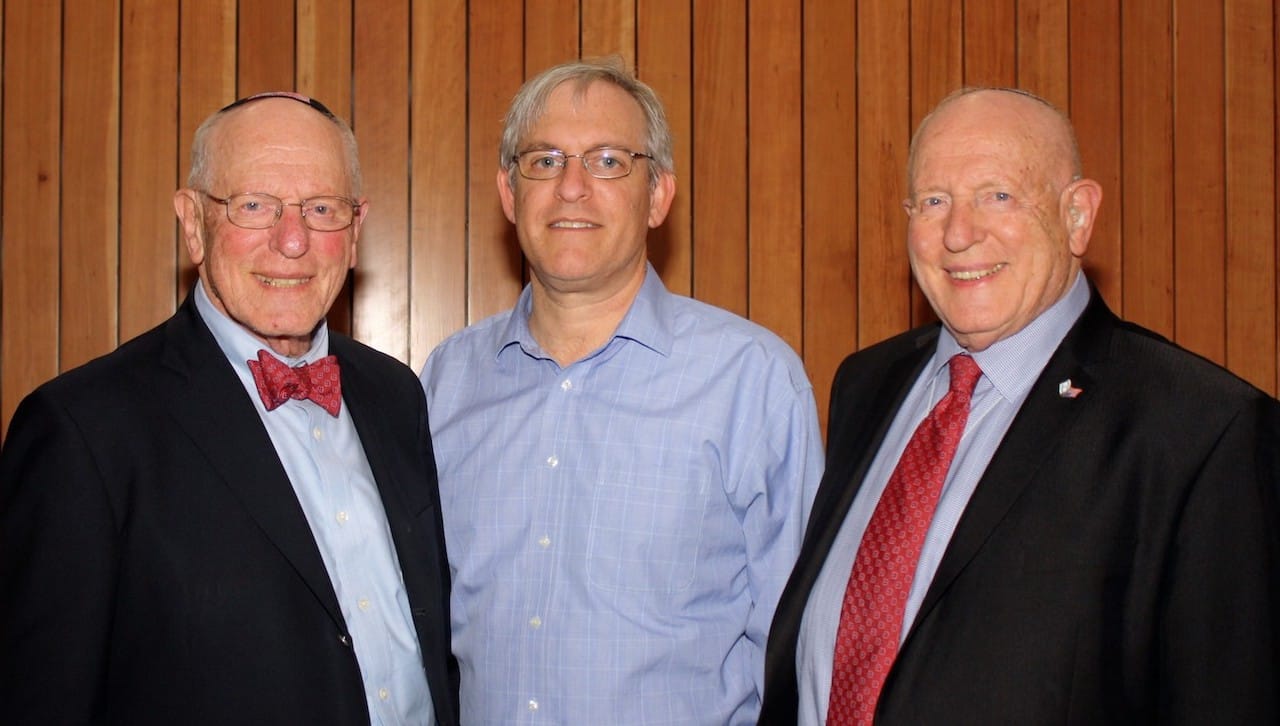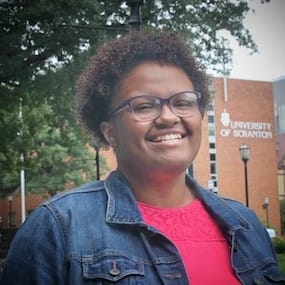Twins Share Their Holocaust Story

“We’ve told our story to our children and grandchildren. Tonight, with your permission, we’d like to include you into our family and share our story with you,” Bernard Schanzer, M.D., said. “Our story is a story of terror and survival told from a child’s perspective.”
The University’s PNC Auditorium in the Loyola Science Center was filled to capacity Nov. 12 for the Judaic Studies Institute Lecture presented by twin brothers Bernard Schanzer and Henry Schanzer, J.D.
Marc Shapiro, Ph.D., professor of theology/religious studies and the Weinberg Chair of Judaic Studies at The University of Scranton, gave a short introduction before the brothers took the stage.
The twin brother spoke about how they were only seven years old when they were first impacted by the Holocaust.
“Our ordeal began when the Germans invaded Belgium on May 10, 1940. Within a few days, 15 members of our extended family – including my ailing grandmother and my sister, who had just had her appendix removed – crammed into a small van. We fled ahead of the event of Germans taking over France,” Bernard said.
Their family, trying to get ahead of what was brewing, fled their home and moved south to St. Etienne. During this time, the brothers were able to escape the horror happening around them, but it would be short-lived.
Their father, Bruno Schanzner, was around 40 years old when their apartment in St. Etienne was seized, and he was deported to a French detention camp on August 26, 1942. He – like many other Jews – ended up in Nazi concentration camps such as Auschwitz.
They emphasized how the invasion of Nazi forces into France tore their family – and the country – apart. After their father was deported, their mother went into hiding and the brothers spent years away from her and any other relatives. At some points, they were in orphanages, and at other times they were in hiding on farms.
“At times, we were so hungry, we resorted to stealing food from the animals. We were malnourished. We had worms and we were very sick,” Henry said.
Eventually, their mother was able to arrange their stay at the farm of Adolphine Dorel in Saint-Pal-de-Mons, where they were kept safe until the end of the war.
In the summer of 1945, the war finally ended, and they were reunited with their mother. In April of 1946, they arrived in the United States and settled on the lower-east side.
“My mother was a 45-year-old widow. Somehow, against all odds, she overcame. We were poor; we didn’t have a pot to put a penny in. We struggled and progressed,” Henry said.
They mentioned how their story is a story of matriarchy.
“My mother really sacrificed her life. After the war, it was incredibly difficult for her, yet she managed somehow to raise us without bringing up all the terrible thoughts, memories, and disasters that she had gone through. She isolated us from the real difficulties that she faced when she came to the United States,” Bernard said.
They ended their lecture with a call-to-action for the community members and students in the audience.
“We must have the courage to stand-up to evil and to bigotry. You cannot be bystanders,” Bernard said. “We have to be vigilant. It [the holocaust] occurred once; it may occur again. What we have to do it make sure that that does not happen again.”







